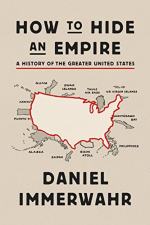|
This section contains 1,217 words (approx. 4 pages at 400 words per page) |

|
Teddy Roosevelt
Teddy Roosevelt, the 26th president of the United States, appears prominently in the third chapter as the paragon of American imperialist thinking. Though born a sickly child into a wealthy Atlantic family, Roosevelt crafted a new persona for himself as a frontiersman and “cowboy.” As vice president, Roosevelt encourages William McKinley to intervene in the Philippines and, as President, oversaw the country’s transfer from the Spanish Empire to the U.S.
Woodrow Wilson
Woodrow Wilson, the 27th president of the United States, followed President William Taft into office. As Immerwahr portrays him, there existed “two Wilsons: Wilson the liberator, Wilson the racist” (117). On the one hand, Wilson supported the many decolonization movements around the country and saw himself as a defender of freedom and liberty. On the other hand, Wilson was also an inveterate racist who repeatedly refused to consider non-white races equal to whites...
|
This section contains 1,217 words (approx. 4 pages at 400 words per page) |

|




